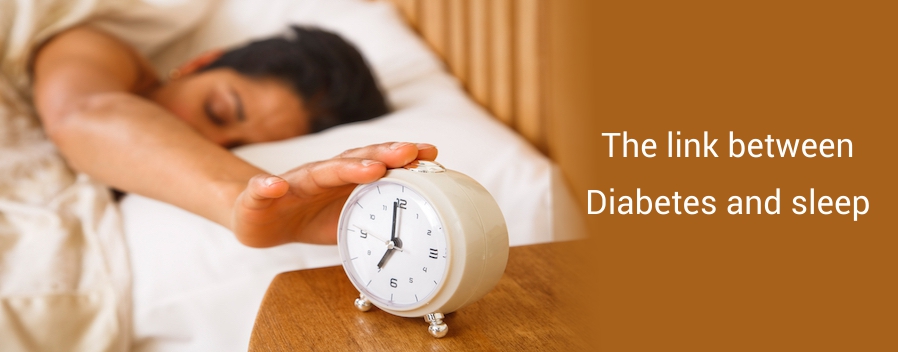
One of the most common complaint from diabetics is sleeplessness. Studies say that most people suffering with diabetes face sleeplessness but do not recognize it as a health-related condition.
Not getting enough sleep has been shown to have a detrimental effect on blood glucose levels and is associated with an increased risk for developing type 2 diabetes. Experts agree that well-controlled diabetes leads to better sleep, and better sleep leads to better control of blood glucose levels.
Shorting yourself on shut-eye can worsen diabetes and, for some people, even serve as the trigger that causes it.
People who don’t sleep enough may:
• Impair the body’s use of insulin
• Have higher levels of hormones that cause hunger
• Crave junk food
A few tips for sleeping tight all night
Lose the extra pounds: A sufficient weight loss is the foremost factor to have a sound sleep.
Quit smoking: Tobacco is an underlying cause triggering the active zones of brain, resulting in sleeplessness.
Find the underlying cause: In case of insomnia, underling cause of anxiety and depression can be treated with cognitive behavioral therapy.
Glucose control: Manage blood glucose levels to avoid diabetes-related symptoms and complications. For those on insulin, work with your doctor to adjust medication, food, and exercise to avoid low blood glucose overnight.
Follow a routine: Going to bed at the same time every day and getting up in the same time every morning helps in maintaining regular circadian rhythms.
Avoid stimulants: Drinking caffeine, exercising, smoking, doing housework, or working too close to bedtime can make it more difficult to fall asleep. In order to promote good-quality sleep, we should have a period of winding down.
No alcohol before bed: A glass of wine seems relaxing and might help you to fall asleep, but you won’t stay asleep if you drink it too close to bedtime.
Exercise daily, but not within two to three hours of bedtime. Please share your sleep experiences and suggestions for improved sleep.
Sleep well!










